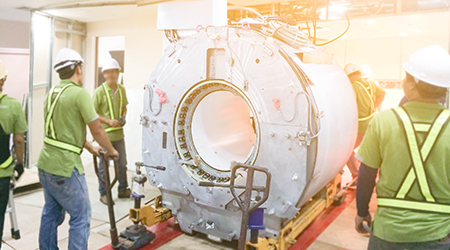In addition to providing a day-to-day plan that allocates the resources needed to operate and maintain buildings and systems, healthcare facilities managers also are responsible for developing a successful capital plan for facilities.
A capital plan that does not account for risk essentially undermines an organization’s ability to factor all potential costs into the equation, according to Health Facilities Management. Capital planning efforts must align with the organization’s vision, mission and strategy. So incorporating a risk-based capital plan is paramount to success.
Managers can evaluate risk by using NFPA 99, Health Care Facilities Code, which defines risk in four categories:
- Category 1: Systems in which failure is likely to cause major injury or death of patients or staff.
- Category 2: Systems in which failure is likely to cause minor injury to patients or staff.
- Category 3: Systems in which failure is not likely to cause injury to patients or staff.
- Category 4: Systems in which failure would have no impact on patient care or staff.
By using this methodology, managers can create a capital plan that allows for the most appropriate allocation of capital over the life of the building.

 Healthcare and Resilience: A Pledge for Change
Healthcare and Resilience: A Pledge for Change Texas Health Resources Announces New Hospital for North McKinney
Texas Health Resources Announces New Hospital for North McKinney Cedar Point Health Falls Victim to Data Breach
Cedar Point Health Falls Victim to Data Breach Fire Protection in Healthcare: Why Active and Passive Systems Must Work as One
Fire Protection in Healthcare: Why Active and Passive Systems Must Work as One Cleveland Clinic Hits Key Milestones for Palm Beach County Expansion
Cleveland Clinic Hits Key Milestones for Palm Beach County Expansion